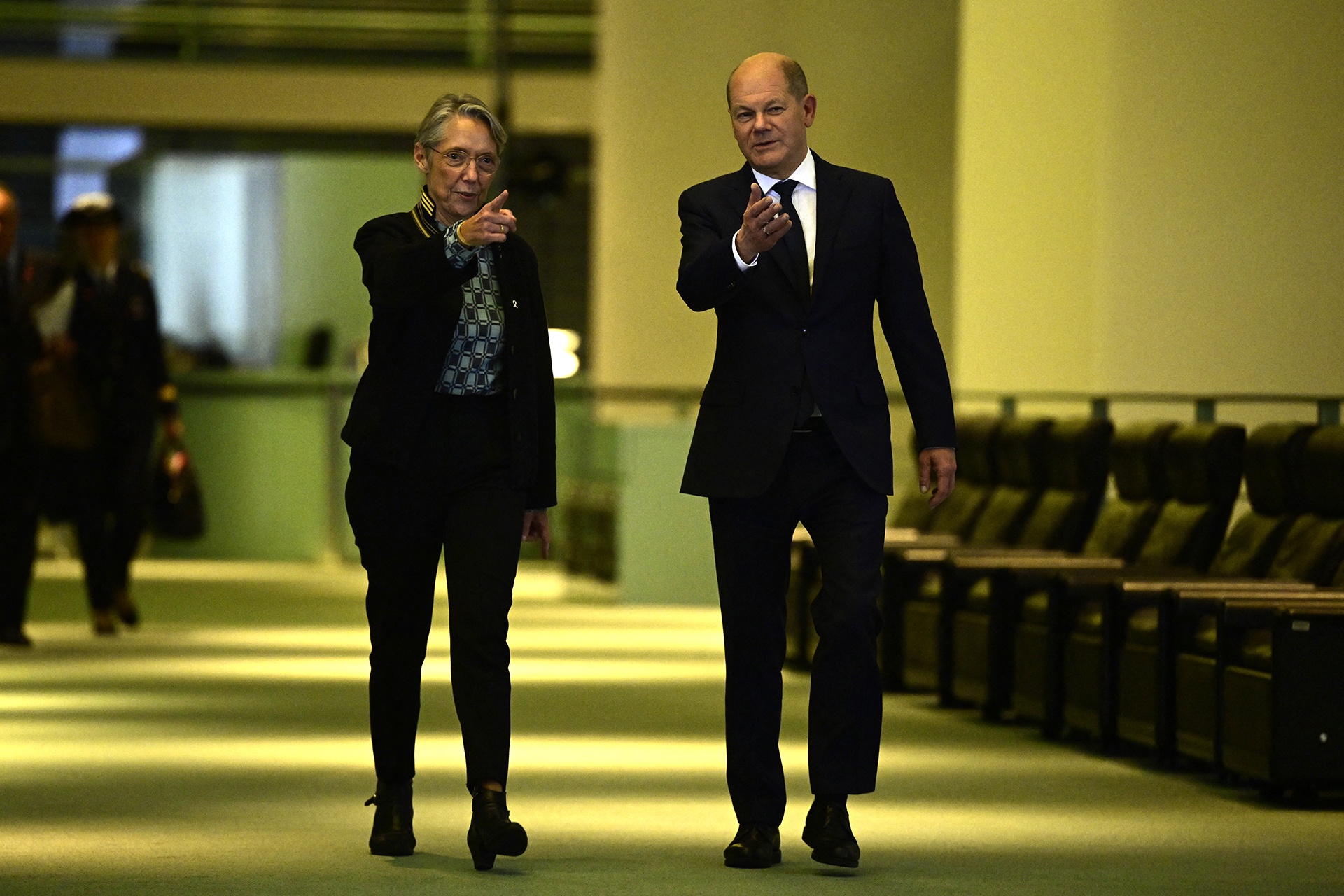The French and German prime ministers signed an agreement in Berlin today, Friday, regarding measures that are supposed to allow "mutual support" between the two countries in order to "guarantee energy supplies" at a time of rising prices.
A joint statement signed by French Prime Minister Elisabeth Born and German Chancellor Olaf Schultz said that "concrete measures" were decided in this direction, especially that France would help Germany by delivering gas to it, while Paris would support Berlin to "secure electricity supplies."
France became a net importer of electricity for the first time in 42 years due to the lowest level of nuclear electricity production. Since 1981, it has been a net exporter of electricity to its neighbors, especially thanks to nuclear power plants that cover more than 60% of the country's electricity production.
But since last January, France has imported more electricity than it has exported, because about half of its nuclear facilities are no longer available due to scheduled and sometimes lengthy maintenance or corrosion problems.
The level of supply should allow France to pass next December without any problem, but for next January there is a risk of power outages, especially in the event of extreme cold if consumption does not decrease.
The agreement signed with Berlin formalizes an effort that Germany has begun to implement since mid-November, which is to "maximize the interconnection capacity available to the market as much as possible," according to the text of the agreement.
According to the new agreement, France will help Germany by delivering gas to it, while Berlin will support Paris to secure energy supplies (Shutterstock)
In addition, Germany undertakes to postpone "the gradual cessation of the remaining nuclear power plants (in the country) until mid-April 2023 in order to provide additional volumes of electricity exchange with France," and to "mobilize all market and reserve production capacities to increase the flow of electricity to France."
For Germany, too, it is a historic turning point because the country was highly dependent on Russian gas, and it must diversify its supplies by turning to the West.
France has 4 ports to receive liquefied natural gas, while Germany does not have any terminal, and France plans to establish an additional floating terminal for liquefied natural gas in Le Havre in the winter of 2023-2024.

